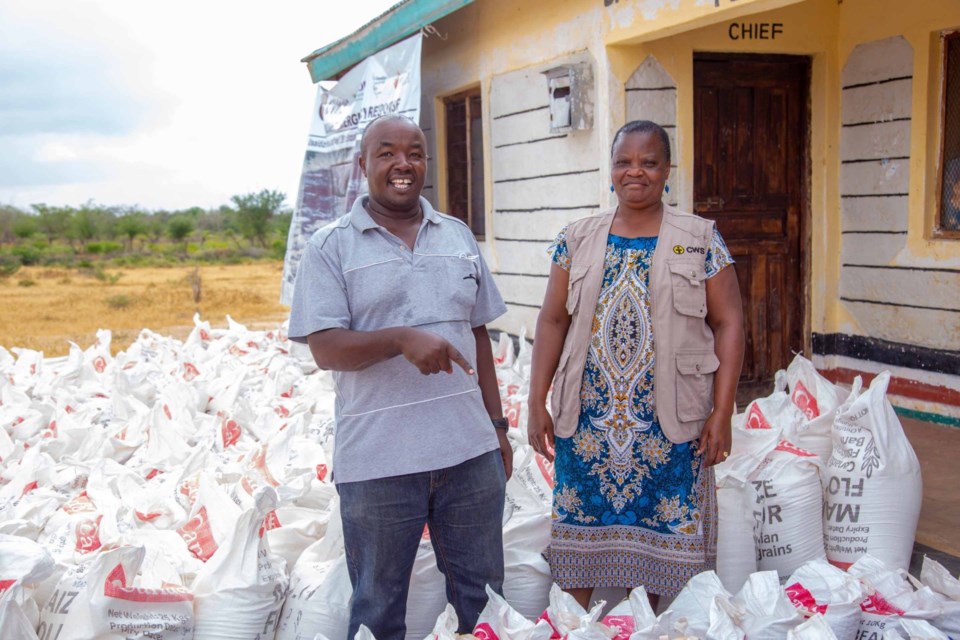MALLAIG – Acres of Hope Growing Project, a community-based initiative in Mallaig, kicked off its 2023 season with an appreciation lunch on April 16 at the Mallaig Community Centre. The project’s aim is to help address food security in third world countries through contributions to the Canadian Foodgrains Bank (CFB).
Don Katerynych, secretary of the Acres of Hope Growing Project and one of its founding members, says the project plans to seed 70 acres of canola and 25 acres of hayland, which upon its harvest, will be sold with proceeds donated to the Foodgrains Bank.
“The annual goal of Acres of Hope Growing Project is to send $30,000 to the Canadian Foodgrains Bank, which is then matched four-to-one by the Canadian Government,” says Katerynych. “The money is then used by one or more of the 15 Christian members of the [CFB] for food aid or food security development projects.”
The project received support from the local community, including farmers and agribusinesses that have donated land and provided free farm tillage services, allowing the project to keep input costs low, he explains, resulting in larger portions of the crop proceeds to be donated to CFB.
Canadian Foodgrains Bank
The project is one of CFB’s 240 growing projects across Canada, with 30 growing projects located in Alberta, according to Ary Vreeken, the CFB Regional Representative of Alberta.
In Canada, CFB partners with Albertans and Canadians to “empower member organizations and churches to work with local partners overseas who implement projects to help those in need,” and address food insecurity, such as helping those without food access due to economic or other reasons, he says.
Each of 240 growing projects is comprised of volunteers - often farmers - who grow crops and donate the proceeds to the CFB to support their overseas work. “We are an organization of 15 churches and church-related partners,” with a vision to see a world without hunger, says Vreeken.
The organization also engages in preventive work, helping farmers in other countries become more resilient against famine and natural disasters.
State of world hunger
During the kick-off event, guest speaker Mary Obiero, a CFB worker in Kenya, highlighted the critical work being done by the organization in Ethiopia, Sudan, and Kenya, where drought has caused significant food shortages.
Obiero spoke how many parts of the region have not had any rain in four years, due to the climate.
“With climate change and conflict come large migration of populations and the need to establish refugee camps,” acknowledges Katerynych.
Drought
Hunger is a growing crisis, says Vreeken. In the Horn of East Africa, some countries have not received rain in four years. The prolonged drought has left millions of people without access to food.
The border between Ethiopia and Kenya is an area severely affected by drought, for example. The lack of rain has led to the death of 2.5 million cattle, a primary source of income for many people in the region.
Often, people are spending up to 80 per cent of their income on food alone, “so then there are no funds left to bring your kids to school or to repair your home,” says Vreeken.
“It’s not like there is food and people just can’t afford it... there’s literally no food in the region,” he says. “So, we have to find food outside of the region and ship it for them.”
Violence and war
Scarcity of food and water often leads to unrest, violence, and fighting among people “for the scarce resources that are there,” Vreeken says, adding, war then leads to displacement.
For instance, Somalia has been devastated by war and fighting for many years, that displacement makes it difficult for people to earn a livelihood, leading to increased poverty and hunger.
“So, the food situation in the world right now is worse than we have seen them in many, many years,” says Vreeken, explaining that without the support of people, including “our Albertan supporters, many more people would literally die from hunger.”
Support
The support that the CFB receives from volunteers, churches, and businesses has been remarkable, says Vreeken, expressing his gratitude for those who have been involved in the growing projects.
“For those who are working and living overseas, it is truly overwhelming to see the amount of support that we get from ordinary Canadians and ordinary Albertans. Anyone who is involved, either directly or indirectly, deserves a round of applause, even though most of those that are involved are not looking for accolades or recognition or thanks.”
Phil Amyotte, chair of the Acres of Hope board, also expressed his thanks to those who continually support the local project, stating it takes a community to ensure the project’s success.
“Without everybody’s help... we can’t really do much,” he says. “I think we all kind of have to do our part in helping others out [and] this is one way that we can do it.” said Amyotte.
“We’re going to help everybody out if we can and when we can.”



